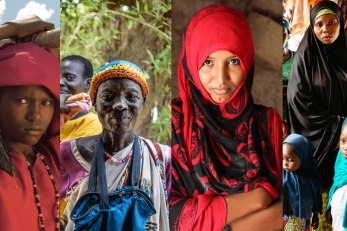Food Security Strategies for Complex Crises

Conflict has a grave impact on food and nutrition security, and humanitarians’ ability to advance it around the world. In 2016, 60 percent of the 815 million people around the world who were chronically food insecure or malnourished lived in countries affected by violent conflict. In early 2017, four violence-ridden countries were put on famine alert: South Sudan, Somalia, Nigeria and Yemen, with famine also likely occurring in northeast Nigeria in late 2016 and parts of South Sudan tipping into famine mid-2017. While each of these contexts is different, the combination of conflict and fragility layered over other pre-existing stresses makes them each so complex – and incredibly difficult to move beyond Band-Aid measures to build more sustainable food security. A new approach is necessary.
While often food security response in conflict environments is one-dimensional, Mercy Corps’ food security approach requires taking a multi-sectoral approach to building food security – building redundancy and applying a systems approach. Applying this multi-sectoral approach food security, this report then explores Mercy Corps’ research on resilience in conflict-contexts – from Nigeria, Somalia, Ethiopia and Syria – to better understand what specifically within different sectors may work to build more sustainable food security in conflict-contexts.
